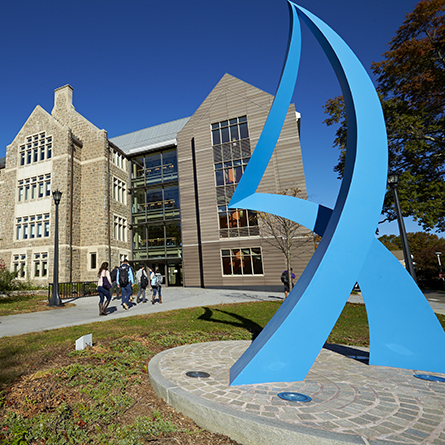
Connecticut College awarded grant for opioid education, awareness program
Connecticut College has been awarded an $11,000 grant from the Connecticut Healthy Campus Initiative (CHCI) to implement a comprehensive opioid education and awareness program on campus.
With the support of the grant, the College will provide students and residence hall staff with training and information on safe medication storage and disposal; train campus safety officers and athletics staff on the administration of Naloxone, a drug that can quickly reverse opioid overdoses; expand substance abuse prevention strategies; and work with community partners to host a program for the campus and local community on the neurobiology of and pathways to opioid addiction.
“We are eager to expand this work on campus and partner in our community to help increase education about opioid addiction and work to decrease stigma around seeking addiction treatment. Our state has seen a statistically significant increase in opioid drug overdoses over the past few years and we must work together to decrease fatal overdose,” said C.C. Curtiss, the College’s director of student wellness and alcohol/other drug education. “We can each do our part and Connecticut College is pleased to be part of the solution to this national epidemic.”
Connecticut College takes a proactive approach to alcohol and other drug abuse prevention. The College’s Office of Student Wellness and Alcohol/Other Drug Education serves as a health and wellness resource for students and the entire campus community by providing quality outreach education on all aspects of wellness. The office staff partner with others throughout the College community to define policies and practices for prevention, education, training, intervention, evaluation, and referral and treatment.
Established in 2004, the Connecticut Statewide Healthy Campus Initiative was created by the Department of Mental Health and Addiction Services in partnership with Connecticut College and 24 other institutions of higher education in Connecticut. The collaboration brings together senior administrators and faculty from 35 member institutions, prevention experts, state officials and community organizations to change aspects of the campus and community environment that contribute to high-risk drinking and other drug use.

